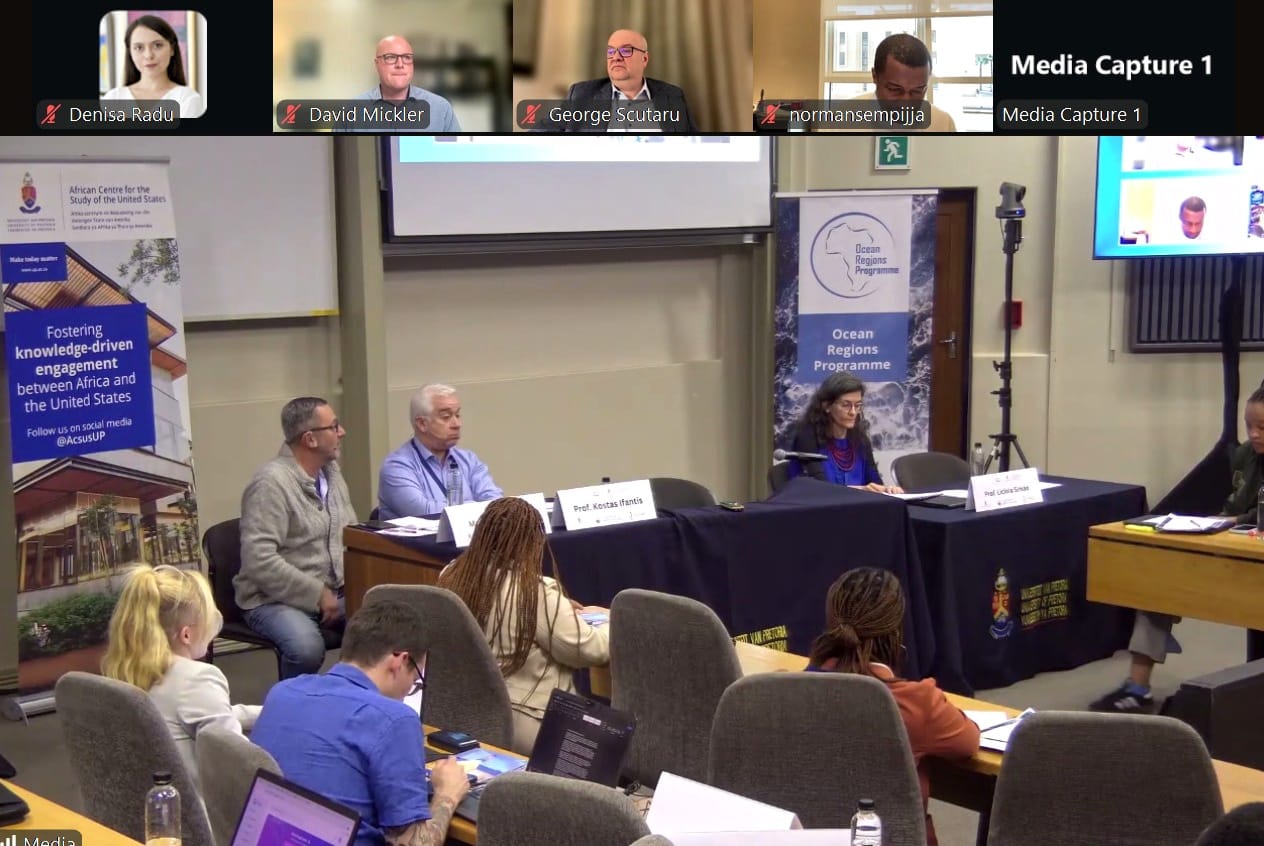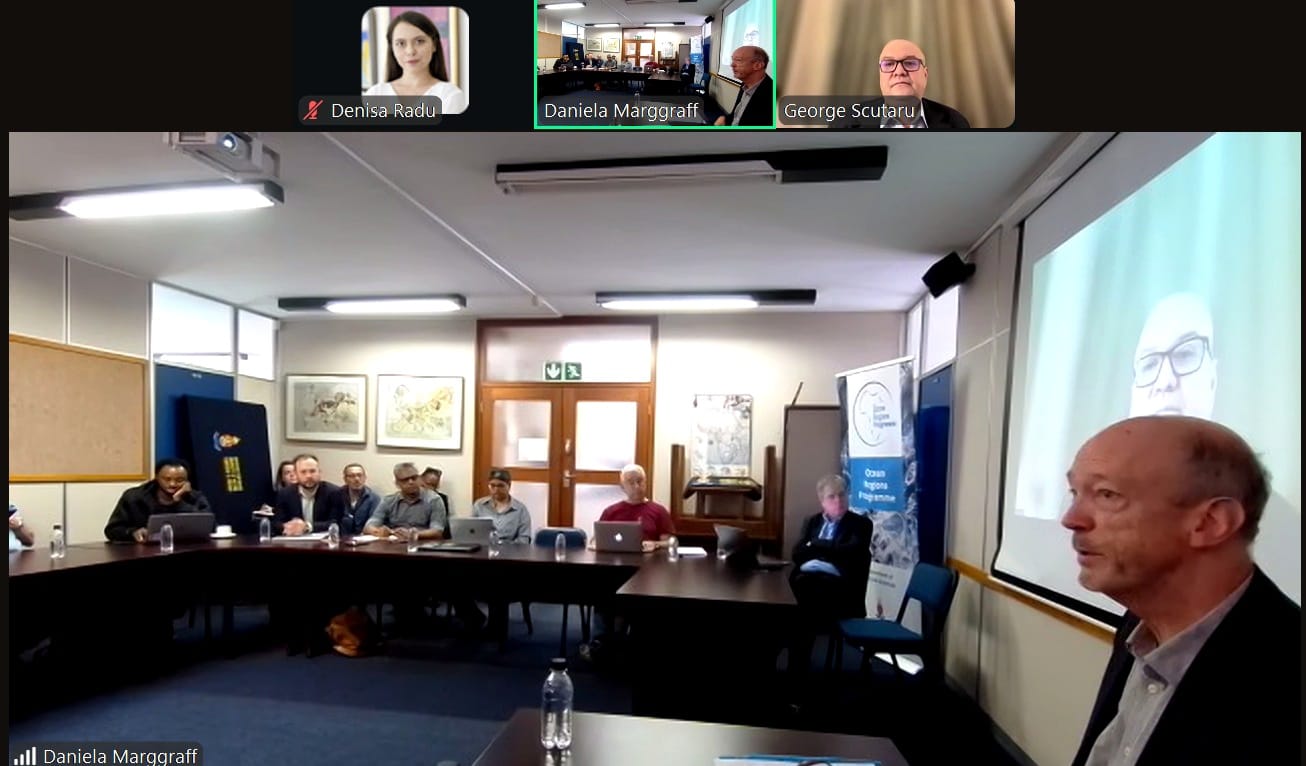George Scutaru, General Director of the New Strategy Center, participated online on Tuesday, November 4, in the conference “Africa, the United States, and Geoeconomics of the Seas”, organized by The African Centre for the Study of the United States and The Ocean Regions Programme at the University of Pretoria. He was a speaker in the panel “Comparative Maritime Perspectives.”
Additionally, on Wednesday, November 5, George Scutaru participated as a speaker at the roundtable “Maritime Security in the Black Sea: Challenges to Freedom of Navigation and Critical Infrastructure,” organized by The Ocean Regions Programme and LSE Ideas, the London School of Economics’ think tank on security and foreign policy.

In his presentations, George Scutaru highlighted the strategic importance of the Black Sea and analyzed security developments in the region in the context of Russia’s aggressive war against Ukraine, also emphasizing the threats to freedom of navigation. Events in the Black Sea have both global and regional impacts, considering the energy transport routes that pass through the Black Sea, the region’s own gas reserves, and its role in global grain trade. For example, before the war, 400 million people in certain African and Asian countries depended on grain exports from Ukraine. Russian attacks on Ukraine’s port infrastructure along the Black Sea and Danube have sought to replace Kyiv on some markets and disrupt grain supplies to these countries.

He noted that, most likely, even after the conflict ends, Russia will continue to carry out hybrid actions in the Black Sea area, such as blocking zones under the pretext of naval exercises, false-flag operations, cyberattacks, and disinformation campaigns, actions that could affect energy and connectivity projects in the region. The lessons learned from the war in the Black Sea, and Ukraine’s asymmetric approach to defending its coastline, will influence how naval warfare is conducted in enclosed seas and drive technological developments, especially in electronic warfare and unmanned systems.


